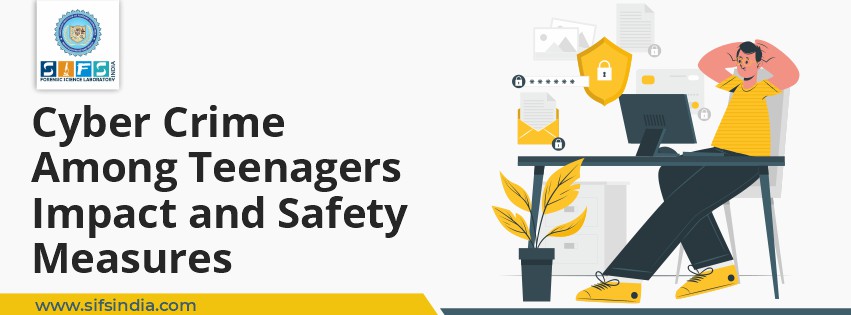To perpetuate a cyber crime nowadays, fewer skills are necessary than ever before, as you do not need to be a computer or programming specialist to hack.
Users may get a range of low-cost hacking tools online.
Hundreds of tutorials and digital guides exist that detail how to get access to computers or steal passwords, as well as how to do all of the above in surroundings, social media, and websites with teen-oriented material.
Email, the internet, and online applications are the primary methods of contact for most people nowadays.
It facilitates the exchange and dissemination of data, photos, and other types of resources.
It is a useful resource, yet it also contains unfavorable information. All of this stems from advances in information technology that have posed challenges to our security and privacy possibilities in order to expand new commercial and social opportunities.
In India, cyber laws are codified in the Information Technology Act of 2000, with the goal of providing a legal framework for electronic commerce and providing protection for online enterprises and transactions.
Hacking the database of the largest firm might be a challenge for youngsters, or they may engage in cyber crime only to demonstrate their hacking abilities and to show others what they can achieve.
Cyber crime among teenagers is the most common scenario these days. There are also some financial losses that arise as a result of the crime.
The victim suffers psychological harm as a result of this, particularly after a relationship in which they were cheated on and then blackmailed, causing them to feel shame and remorse.
The main type of cyber crimes is unauthorized access or breaking into someone's computer network without their permission, then taking control of and/or stealing information from other systems.
Accessing the protected part of the school's computer network in search of test paper answers or attempting to modify test results are two examples.
And also it is prohibited to create, distribute, or receive malware (malicious software), viruses, spyware, botnets, or remote Access Trojans.
Criminals can use these programs to get access to other people's computers and carry out illicit acts.
It is still unlawful to 'prank' a buddy by remotely accessing their computer while they are unaware that you are doing so and playing around.
And performing a DDoS (Distributed Denial of Service) assault, often known as "booting."
A DDoS attack is a method of overloading an online service with internet traffic from various sources in order to render it inaccessible.
A major website or a single internet user can both be considered an "online service." It may appear like taking someone offline while they are playing online games is a harmless prank, but it is still unlawful.
The major consequences are Under the Computer Misuse Act, cyber crime is a serious criminal offence.
Cyber crime is taken very seriously by the National Crime Agency and the police, and they will make every attempt to apprehend and punish perpetrators.
Young people who engage in cyber crime may face the following consequences:
- A visit and warning from police or NCCC agents
- Computers being confiscated and access to the internet being restricted
- A penalty or fine, arrest, Up to ten years in jail for major offences.
A permanent criminal record might have an impact on schooling and future professional opportunities, as well as future international travel.
Even though not everyone is a victim of cyber crime, they are nevertheless at danger.
Computer-assisted crimes are diverse, and they may not necessarily take place in front of a computer, but they are always carried out by one.
The hacker may be on the other side of the world from the victim, and they would have no idea they were being hacked.
Computer-assisted crimes are an issue in the twenty-first century.
Criminals no longer need to rob banks or go outside to conduct any crime, thanks to advancements in technology.
On their laps, they have everything they require. Their weapons are no longer firearms; instead, they employ mouse cursors and passwords to attack.
Individuals should avoid giving any personal information in order to avoid online stalking. This is the same as disclosing your identity to others in a public place; avoid sending any images online, especially to strangers and chat pals, since there have been cases of pictures being misused.
To protect yourself against virus attacks, make sure your anti-virus software is up to date.
Always preserve backup volumes so that data is not lost in the event of virus contamination.
Never submit your credit card information to a website or to a stranger; this is not a safe method of preventing fraud. Always keep an eye on the websites your children visit to avoid any form of child harassment.
It is far preferable to utilize a security application that allows you to control the cookies and transmit all of the information back to the site, since leaving the cookies unsecured might be fatal.
Owners of websites should monitor traffic and abnormalities on their sites.
It's critical to debate and analyze the consequences of many different information security awareness transmission strategies on end users' information security awareness and behavior.
Every piece of evidence contains a hidden truth. From meticulous crime scene analysis to cutting-edge digital forensics, our expert team is dedicated to decode mystery within every clue. Discover how our specialized forensic expertise can support your investigation.
Call on +91-11- 47074263 or WhatsApp +919953546546
Learn More About Cyber Forensic Services

 November 07, 2021 - BY SIFS India
November 07, 2021 - BY SIFS India